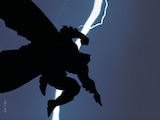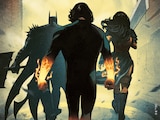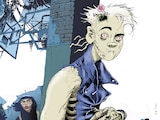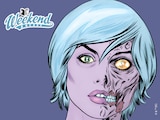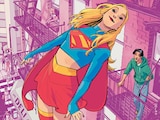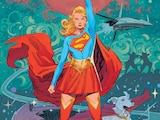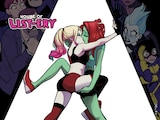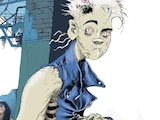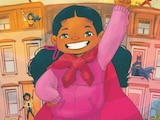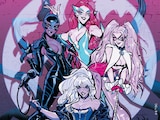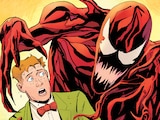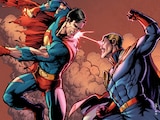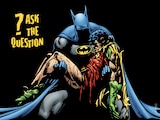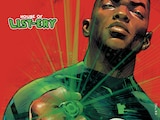When we’re reintroduced to Diana Prince in Wonder Woman 1984, all of the friends she made in her WWI-set first outing have passed on, leaving the ageless Amazonian princess alone. She’s still many years from meeting Bruce Wayne and the other members of the Justice League, and is, for the time being, choosing to live her life in solitude. She has no family. She has no friends.
She does, however, have looming enemies. Two of them, in fact.
Wonder Woman 1984 brings longtime Wonder Woman villains Barbara Minerva and Maxwell Lord to the big screen for the first time, brought to life by actors Kristen Wiig and Pedro Pascal. After a charismatic first meeting, the two baddies combine their forces for a common goal in Wonder Woman 1984, something that’s great for viewers as the onscreen dynamic between Wiig and Pascal is phenomenal. However, it’s bad news for Diana, since both Lord and Minerva—who’s better known among fans as the Cheetah—are more than capable of causing great destruction on their own.

“I don't really get asked to do these kinds of things, to be honest,” admits Wiig when asked how she feels about playing such an iconic super-villain. “I was really shocked and happy, and of course, felt extra pressure when I signed on. I'm like a superhero geek. I see all the movies. I was obsessed with the first film, so to know that I was going to be in it, and that I got a chance to be a villain and that Patty Jenkins believed that I could do it, it was like an amazing life experience for me.”
Much like in the comics, Diana and Barbara start things off as friends. In fact, Barbara is the first friend Diana has made in quite a long time.
“She lost all of her team members, she's been very lonely,” explains Gal Gadot. “She doesn't really want to engage and make new friends because then they're going to realize she doesn't age, and they're going to die and she has to let go. So, she’s kind of isolated herself from the world.”
Enter Barbara Minerva. The socially awkward geologist also doesn’t have many friends, creating a sort of common ground that Diana quickly picks up on. The two form a fast bond, but the differences between them become increasingly noticeable. After all, Diana has consciously chosen to live a solitary life and remain unseen—Barbara has not. Her lack of friends isn’t deliberate, and as she sees people fawning over the beautiful, brilliant and stylish Diana, envy creeps in. Soon, Barbara becomes determined to have what Diana has. Everything Diana has.

“We didn't want it to be this typical sort of mousy-girl-turned-villain,” says Wiig. “What is it about her that makes her so lonely and so invisible, and then what does she really, really want? She goes through three really big stages. The wardrobe and the costumes and all of that definitely helped, and again, working with Patty and trying to figure out who Barbara is with every stage.”
While we’ll keep the bigger details on everything that happens vague, eventually Barbara dumps her basic, functional office wear for outfits that are a lot more stylish and, in a clear bit of foreshadowing, fur-based. But her ultimate transformation is into the feral, aggressive and powerful woman/cat hybrid that she’s known as in the comics. As the Cheetah, Minerva really does pose a threat to the equally powerful Wonder Woman, but as the first live action take on the villain, the question about how to pull off her unique look was an open one.
“I embraced doing extensive research on just how we were going to do (the transformation),” shares Wonder Woman 1984 director Patty Jenkins. “We tried doing full makeup, tried doing half makeup, tried doing a third makeup—we tried every single thing. We looked at CG, but I said to everyone, ‘Show me the best example of anybody ever doing it.’ But they couldn’t, so I said, ‘Well, then we can’t do that. We have to do a ton of real makeup.’ There’s a huge amount of prosthetics attached to her real face and body, and then you’re just doing elements of CG.”

Fortunately, no prosthetics or CG were required to bring Maxwell Lord to the screen—unlike Dr. Minerva, Lord remains strictly human. At least in appearance. While the movie’s Lord isn’t quite the same as the version fans may be familiar with from the comics, they know that there’s often more to Maxwell Lord than meets the eye.
“I like so many of the different variations of Max Lord, but he usually is a little bit diabolical,” admits Jenkins. “I’m incredibly intrigued by the Bernie Madoffs of the world. Like, how do you become that guy?”
In Wonder Woman 1984, Lord is a slick wannabe oilman who shills investment opportunities on national TV. The only problem? His company is failing and he’s on the brink of bankruptcy. However, Lord isn’t one to give up when it comes to his success, a determination that leads to him taking things to alarming extremes.
“He thinks he has to become this super powerful person in order to be worth anything,” Jenkins explains. “Max gets so caught up in it and being the man who he thinks he needs to be that he loses the forest for the trees. I think so many of us do that. You have to ask, what did you start doing all of this for in the first place? To be loved? Then just be loved! That’s always so interesting to me.”

Ultimately, Lord does find that success he’s looking for, along with great power. But as we learned in the 1980s, unfettered success and power often comes with a tragic, destructive cost. When that becomes clear to Lord, it creates a desperation in him that required a level of performance from Pascal that we’ve not seen from him before.
“I call it the Patty Jenkins experience,” he shares. “You can't get away with something that is the typical. It has to be complete and have all the risks, and all of the danger and ultimately the humanity, no matter how dark of a character it is, to make the experience as honest as possible. I wasn't surprised, because of all her films that I'd seen before and the performances that are in those movies, but I definitely didn't know if I would be able to get there. And I owe it to my director. I completely owe it to my director, if it worked.”
Much like with the Cheetah, Lord’s performance isn’t a quiet or subtle one. Wonder Woman 1984, with its eye towards ’80s-era excess, isn’t that type of movie. But Lord is eye-grabbing in a different way, resulting in a powerful antagonist who never really seems all that sure of himself.

“The scariest thing about this movie and this experience for me was to do something that is a lot closer to me, at least energetically,” Pascal acknowledges. “Just to kind of expose desperation. Instead of simply brooding with a mustache, it was expose, expose, expose. And I had to use a lot of myself to do what Patty wanted. It was really scary and thrilling.”
Often with superhero movies, it’s the villains that steal the show, but that’s hard to do when the hero is someone as appealing, beloved and unique as Wonder Woman. You really don’t want the villains distracting from her. Rather, you hope that they’ll offer an equally compelling counterpoint to her presence and her ideals, something that Maxwell Lord and Barbara Minerva have been doing for generations in the comics and that continues in Diana’s newest cinematic adventure.
“With all of these characters, I think the challenge for me is to say, ‘Okay, there’s the archvillain or maybe the hero. What’s the human version of that, which is interesting and nuanced?’” Jenkins makes clear. “In this movie, I liked the idea that no one’s really the bad guy. Everybody in the movie is human and struggling, as we all are with these challenges and these things that we wish we can let go of.”
Wonder Woman 1984 opens in theaters and on HBO Max on Friday, December 25th. For all the latest news, trailers and features on Diana’s return to the screen, visit our official Wonder Woman 1984 movie page.

